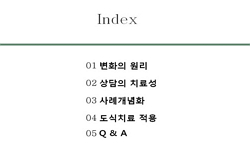Comparative research in cultural psychology has documented variations in moral psychology across and within societies. Such variations suggest that the ontogenetic process of moral acquisition cannot be accomplished solely through internal developmen...
http://chineseinput.net/에서 pinyin(병음)방식으로 중국어를 변환할 수 있습니다.
변환된 중국어를 복사하여 사용하시면 됩니다.
- 中文 을 입력하시려면 zhongwen을 입력하시고 space를누르시면됩니다.
- 北京 을 입력하시려면 beijing을 입력하시고 space를 누르시면 됩니다.
https://www.riss.kr/link?id=T13399369
- 저자
-
발행사항
[S.l.]: The University of Chicago 2013
-
학위수여대학
The University of Chicago Comparative Human Development
-
수여연도
2013
-
작성언어
영어
- 주제어
-
학위
Ph.D.
-
페이지수
306 p.
-
지도교수/심사위원
Adviser: John Lucy.
-
0
상세조회 -
0
다운로드
부가정보
다국어 초록 (Multilingual Abstract)
This study is framed within traditions of moral psychology that seek to understand the origins, development, and nature of individuals' moral functioning. However, in order to investigate culture as a process of developmental change, it is necessary to break the bounds of the moral psychology tradition to incorporate ethnographic and language-interaction analyses—the prototypical methods of the language socialization paradigm in anthropology.
The current research combined ethnographic, psychological, and language-interaction methods to investigate the socialization of "helping" among elementary school-aged children being raised in an evangelical Christian community as a case study in moral psychology. Findings suggest that the provision of reflective frameworks for evaluating moral responses is an important cultural process of children's moral development in this community. Moreover, children's moral thinking may itself be rooted in everyday interaction experiences that children co-construct and internalize.
This research contributes to cultural psychology and moral development research by suggesting how culturally organized socialization processes interact with children's spontaneous moral concepts to contribute to the development of moral thinking. This research further contributes to research on the psychology of "liberals" and "conservatives" by elucidating the cultural context for interpreting the moral reasoning of evangelical Christians as a response to predicaments of modern society. Through this lens, both "liberal morality" and "conservative morality" can be recognized as two types of responses to the basic tension regarding the bonds of social cohesion in organic societies that prioritize the individual (cf. Durkheim, 1893/1997). Throughout and across levels of analysis, this research foregrounds the systematic, cognitive nature morality to provide a platform for theorizing the roles of moral reasoning (or reflection) and moral intuitions in moral development.
Comparative research in cultural psychology has documented variations in moral psychology across and within societies. Such variations suggest that the ontogenetic process of moral acquisition cannot be accomplished solely through internal developmental mechanisms of the individual mind. Rather, moral acquisition must also involve the individual's engagement with cultural meaning systems. In this way, findings from cultural psychology strongly implicate the role of cultural processes in children's moral development. However, the nature of these processes remains unclear. The current study aims to address this issue.
This study is framed within traditions of moral psychology that seek to understand the origins, development, and nature of individuals' moral functioning. However, in order to investigate culture as a process of developmental change, it is necessary to break the bounds of the moral psychology tradition to incorporate ethnographic and language-interaction analyses—the prototypical methods of the language socialization paradigm in anthropology.
The current research combined ethnographic, psychological, and language-interaction methods to investigate the socialization of "helping" among elementary school-aged children being raised in an evangelical Christian community as a case study in moral psychology. Findings suggest that the provision of reflective frameworks for evaluating moral responses is an important cultural process of children's moral development in this community. Moreover, children's moral thinking may itself be rooted in everyday interaction experiences that children co-construct and internalize.
This research contributes to cultural psychology and moral development research by suggesting how culturally organized socialization processes interact with children's spontaneous moral concepts to contribute to the development of moral thinking. This research further contributes to research on the psychology of "liberals" and "conservatives" by elucidating the cultural context for interpreting the moral reasoning of evangelical Christians as a response to predicaments of modern society. Through this lens, both "liberal morality" and "conservative morality" can be recognized as two types of responses to the basic tension regarding the bonds of social cohesion in organic societies that prioritize the individual (cf. Durkheim, 1893/1997). Throughout and across levels of analysis, this research foregrounds the systematic, cognitive nature morality to provide a platform for theorizing the roles of moral reasoning (or reflection) and moral intuitions in moral development.











